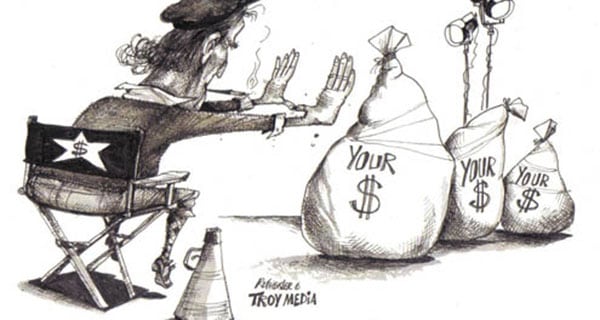 The leaders of Canada’s creative rebellion have emerged victorious after two years of struggle. That means consumers will almost certainly pay more for years to come for their much-loved Canadian television content.
The leaders of Canada’s creative rebellion have emerged victorious after two years of struggle. That means consumers will almost certainly pay more for years to come for their much-loved Canadian television content.
The news came just prior to the Labour Day weekend. The Canadian Radio-television and Telecommunications Commission (CRTC) issued a decision confirming that it was capitulating on its May 2017 effort to drag the creation of Canadian content into the real world by giving broadcasters “the tools they need to stay competitive in an on-demand environment and consumers have access to a wide range of programming.”
The previous course of action was a reasonably good attempt to recognize current reality and initiate a more nimble, less prescriptive framework designed to make your needs as a consumer paramount.
But it enraged the creative unions – writers, actors, etc. They didn’t like the plan because it lowered their guaranteed income through the amount of money that had to be spent on something called programming of national interest (PNI) to five per cent of Bell Media, Corus Entertainment and Rogers Communications Inc. revenues.
That trio will now be required to cough up 7.5, 8.5 and 5.0 per cent respectively for the most labour-intensive and therefore expensive programming there is, employing thousands of screenwriters, actors and others.
The creative collective didn’t like the 2017 decision just as it resisted others preceding it that had similarly attempted to put viewers at the top of the regulator’s list of priorities. They liked things just the way they were. And they had been campaigning hard against change since the autumn of 2016.
In the end, the CRTC stuck its tail between its legs and ran away from consumers. Instead, it returned, at the behest of the government, to its more comfortable role of divvying up your entertainment spend between the industry’s players. That means $175 million a year to the creative workforce which, inevitably, will translate into $175 million less disposable income for the rest of us. Sweet.
You might think it’s crazy that a government agency actually determines genres of programming, but for the creative unions, this is their meat and drink. The CRTC always made sure the table was set, and the writers and actors dined. And now, regardless of all the changes to the entertainment marketplace that have occurred since video could be consumed on the Internet, they’ll be dining like it’s 1999 all over again.
The political response to this decision has been negligible – as it has been from so-called consumer groups – likely due to the legend of the 2008 federal election and the fear it instilled in many of offending the creative lobby. The Conservatives are believed to have let a majority government slip through their grasp when their attempts to reallocate a mere $45 million in national arts and culture funding became a large political issue in Quebec, where reduced money flow is easily translated into an assault on the very heart of a nation.
The risk that the same could occur in 2019 is also blamed for the demise of former Heritage minister Melanie Joly and her very sensible efforts to take note that this the 18th year of the 21st century.
The purpose of this sort of market micro-management is not entirely cultural, although that’s the beard it wears.
It’s a lot less about producing shows that people want to watch and enriching the nation’s cultural framework than it is about making work for people who want to make the sort of TV shows they want to make.
As someone I once worked with used to say, if that’s the main point of it, it makes more sense just to give them all government jobs in a department of film and TV.
But as it turns out, broadcasting policy doesn’t have to make sense any more than supply management does.
All you need to know as consumers and viewers is that, in the end, the creative lobby – particularly in Montreal – always wins.
And you will always lose. And pay.
Troy Media contributor Peter Menzies is a former newspaper publisher and CRTC vice-chair.
The views, opinions and positions expressed by columnists and contributors are the author’s alone. They do not inherently or expressly reflect the views, opinions and/or positions of our publication.


